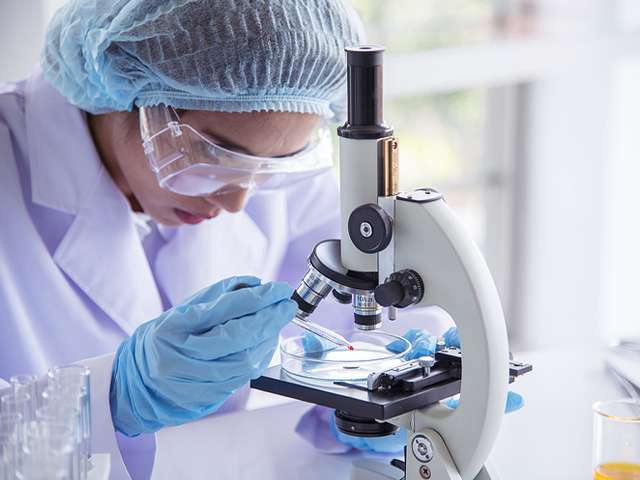
There is a plethora of career paths to explore with a biotechnology career. There are options to work at a pharmaceutical company as a technician or to work with medical devices or to be an associate scientist at the bench. The options are endless in this interdisciplinary and complex field.
The biotechnology options go beyond chemistry and biology. There are many different industries that this discipline applies to. Beyond initial drug development, professionals can find meaningful and exciting work options.
These careers and this field cover additional areas that are equally vital in bringing an important biotechnology product into the market. These areas include the following:
- Manufacturing
- Project Management
- Research and Development
- Clinical Research
- Business Management
- Animal, food, and environmental science
- Policymaking and Government
- Technical Support and Sales
- Regulatory Affairs and Quality Assurance
- Software Engineering
There are applications for biotechnology in numerous industries. This means professionals have the option to work in different organizations including private companies, clinical laboratories, regulatory bodies and more.
Typically, biotechnology employees’ range in type and size from global pharmaceutical leaders to tiny start-ups and federally-funded organizations including the National Institutes of Health and the Department of Agriculture.
There are so many exciting developments occurring in the field including gene therapy, hazardous waste control, treatment for industrial disease and personalized medicine.
One of the best features about the industry is that regardless of the field you participate in, you can enjoy a dramatic impact on your surrounding world.
Biotechnology Careers in High Demand
The following careers are excellent for long-term work outcomes and above-average pay.
Biochemist: Average Median Pay is approximately $91K
2026 Projected Growth is 11%
Biochemists study disease, cell development, heredity, biological processes and disease. They are experts in the chemical properties that make up living things.
Biochemists undergo complex research projects. They must synthesize proteins and analyze and isolate molecules including sugars, carbohydrates, DNA, fats and lipids. This specialty additionally studies the effects of hormones, drugs and nutrients on biological processes and tissues to create items and processes that can help to improve health in humans.
Biomedical Engineer: Average Median Pay is approximately $88K
2026 Projected Growth is 7%
Biomedical engineers combine biological and engineering expertise to create solutions in different aspects of medicine and biology. The goal is to improve the effectiveness and quality of patient healthcare. They are responsible for designing devices, biomedical equipment, artificial organs, medical software, diagnostic equipment and prostheses.
Microbiologist: Average Median Pay is approximately $70K
2026 Projected Growth is 8%
Microbiologists study viruses, bacteria, and the immune system to produce biomedical and industrial products. These professionals conduct complex research projects and lab experiments to aid in the diagnosis and treatment of infectious illnesses.
Medical Scientist: Average Median Pay is approximately $82K
2026 Projected Growth is 13%
Medical scientists are responsible for conducting clinical research to improve the health of patients. They focus on prevention methods and investigating disease. Medical scientists also spend time testing and designing medical devices. They often analyze and prepare medical samples to discover the treatments and causes of chronic diseases, pathogens and toxicity.
These scientists work to standardize doses, how potent the drugs are and create effective methods for drug distribution and mass manufacturing of medical compounds and drugs.
Clinical Technician & Biological Technician: Average Median Pay is approximately $51K
2026 Projected Growth is 13%
Biological technicians also go by the name medical laboratory scientists. This occupation is responsible for performing tests, collecting samples, and analyzing the results of bacteria cultures, tissues, body fluids and other items.
These professionals rely on advanced robotics, automated equipment, and specialized computer software to model, analyze and collect various data.
Business Development Manager: Average Median Pay is approximately $113K
Business development managers deliver competitive intelligence and detailed market analysis to biotechnology firms and companies. They establish and execute investment and growth strategies.
Business development managers assist in pursuing and assessing collaborative research, acquisition and expansion. They focus on working together with other institutions in the biotechnology realm to accomplish business growth in line with corporate goals set by a corporation.
Process Development Scientist: Average Median Pay is approximately $94K
The people who oversee the manufacturing process in a lab organization are the process development scientists. They are focused on increasing efficiency and quality.
Each time a new product has been created and approved for manufacturing, these professionals establish methods to adhere to standardized protocols and to scale production.
Commercialization or Director of Product Strategy: Average Median Pay is approximately $124K
The business-related jobs that fall with the development and planning of commercialization endeavors fall to the biotechnology professionals. They are responsible for the marketing development and product launch, logistics, marketing, profitability and growth. They must constantly ensure that they are meeting quality requirements and regulatory compliance at every step.
Biomanufacturing Specialists: Average Median Pay is approximately $80K
A biomanufacturing specialist relies on methods and tools to ensure items adhere to stringent safety, purity, quality and potency requirements. They monitor these key factors at each phase of the manufacturing process.
Often, biomanufacturing involves the production of large-scale proteins utilized for curing and treating human diseases. This means that these professionals must have a strong knowledge of regulatory standards at industry, state and federal levels.
Preparing for a Biotech Industry Career
Aspiring professionals within the biotech industry can utilize 5 main strategies to advance their career potential.
1. Establish your educational foundation
Having a solid base in science-related courses can help you create the educational foundation required for this field. Consider taking advanced classes and programs. Obtaining a Master of Science in Biotechnology can allow you the opportunity to explore a variety of avenues within your career.
Seek a degree program that delivers multiple chances to obtain hands-on experience. This will help you experience the responsibility and accountability of a company in real time. The work consists of achieving desired outcomes, facilitating projects and learning every step of the way.
2. Focus on enhancing your soft skills
Honing your soft skills is just as vital as being detail-focused at the bench. Scientific prowess is only one part of the puzzle within the current biotechnology market. Those hiring will look at the total package of what skills you can bring to the table.
Of course, scientific knowledge and technical skills are still an essential baseline. However, being an effective communicator and being capable of engaging with others is vital. How well do you handle conflict? Are you able to troubleshoot issues? Can you defend your hypotheses? Having a well-rounded approach will help you be more of an asset.
The hiring manager will want to know how well you can articulate your ideas to fellow coworkers in the company. Perfecting your soft skills will give you a major advantage. Simply being able to work well in the lab is great; however, you need to be able to communicate your findings to your team.
3. Never stop adapting and learning
There is continuous change and growth within this industry. It is imperative that students grasp this and are prepared, as this is one of the main challenges that professionals face.
The goal is to create meaningful products however, there is a vast financial component to each project and team members are working within budgets and business models. Departments may disappear and jobs can be terminated, so staying flexible is key.
Due to the constant change, there are often new teams or products that will show up quickly. Being prepared to work in a dynamic industry means that you are always ready to learn. Keep upgrading your skills or taking additional certificates when you can. Utilize your network and go to conferences to keep up-to-date on the latest technology.
4. Remain open-minded
The options are practically endless in the biotechnology realm. There are many different roles available within the industry. It is essential not to limit any options based on your initial experiences and to stay open-minded.
Don't be discouraged if you are unable to find a suitable role straight away. You may explore a start-up venture where you can access a variety of roles, or perhaps, you wish to work for a pharmaceutical giant.
Don't simply focus on the money component. It is essential to ask yourself if you can really see yourself working in a particular place. Fortunately, you will likely make a substantial living in this field regardless of what avenue you pursue. In the USA, the estimated biotech worker wage is $94K annually.
5. Establish your professional network
Your career success will largely depend on creating a vast professional network. According to some studies, approximately eighty-five percent of jobs are filled via networking.
While it may seem impossible to find the time to establish meaningful connections with those around you, take time to prioritize time with professors, colleagues, industry professionals, advisors and supervisors.
Attend local meetups in your industry, become a member of a professional organization, speak to coworkers at lunch. By maintaining robust professional contacts, you can access future job opportunities and industry experts much easier. Who knows, your next job offer may come from one of these contacts.
How To Navigate the Next Step in Your Biotechnology Career
Earning an advanced degree is ideal if you want to work at the forefront of the biotechnology industry. In this evolving field, there is an ongoing need for skilled professionals who specialize in technology. Being innovative and having the drive to showcase new technologies are great ways to succeed.











